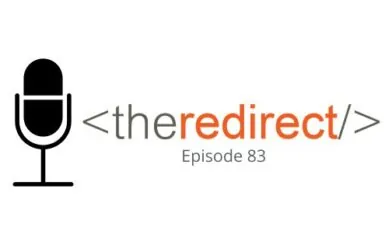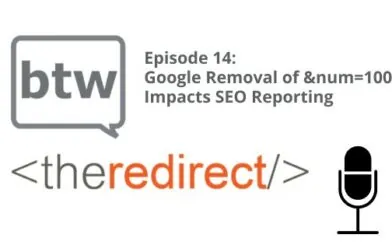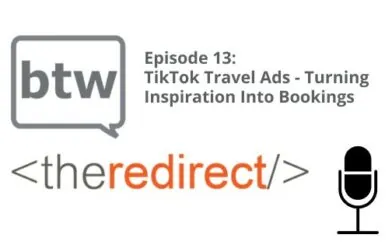In Episode 72 of The Redirect Podcast, we cover the role that search engine optimization (SEO) plays in public relations (PR) with the newest member of the BlackTruck Media + Marketing team, Derek DeVries. In-depth talks on SEO’s influence on modern day communications, how the shifts in journalism and publications to the digital realm makes a stronger case for these two professions to be more closely aligned.
In this week’s episode:
- SEO and PR as Relationship-Building Disciplines (begins at 2:37).
- Understanding Your Audience Through PR and SEO (begins at 4:40).
- Press Releases and Content Marketing (begins at 8:13).
- The Rise of Content and Influencer Marketing (13:00)
- The Future of the Press Release and SEO (20:24).
- Why do Wire Services Exist? (23:03).
- Trust in Search vs. Social or Traditional Media (28:45).
- SEO for Startups and New Categories (33:10).
- The Future of Digital PR (36:30).
- Future Communicators: Specialists vs. Generalists (40:28).
SEO and Public Relations
Of the communications disciplines, SEO gels most naturally with public relations. Core to both functions is a deep understanding of audiences and a focus on relationship-building (whether with human beings or algorithms).
Defining audiences is an equation we can better solve for together. SEOs have visibility into the unanswered questions of audiences, and PR pros have visibility into the channels to reach publics as well as the ways to develop messages that resonate.
An untapped opportunity exists for PR practitioners and SEOs to better share the research they conduct in the course of their work to mutual benefit. SEOs will need to better understand what kind of search insights are beneficial to PR; conversely, PR pros need to grow the sophistication of their understanding of SEO.
The History of SEO and PR to the Present
Over the past 20 years, the mass media landscape has radically shifted – and the traditional news outlets have borne the brunt of change. There are fewer news outlets and journalists, making it harder than ever to earn media attention. Worse, the news media no longer has the trust of the vast majority of the public.
This is best encapsulated in a handful of alarming statistics about the state of the news media:
- PR practitioners now outnumber journalists by a ratio of more than 6.4-to-1; twenty years ago that ratio was 1.9-to-1. (Weber Shandwick)
- Since 2008, news outlets have lost 23% of their staff as a result of cost-cutting – that was before the COVID-19 pandemic accelerated the trend of shrinking newsrooms. (Pew Research Center)
- In the 1970s, between 86-72% of the public trusted the news media. Currently only 40% of Americans say they have a great deal/fair amount of trust in the news. (Gallup)
The declining opportunities for coverage, paired with the degradation of trust in the news media has driven brands to look for other ways to reach their publics. As a result, some have begun communicating directly with audiences through content marketing or brand journalism. Influencer marketing, too, has taken off as organizations and PR teams seek alternate sources of authority and credibility.
Mainstays of the practice of public relations – the press release and the news wire – have undergone considerable change in recent years (with more to come). They no longer provide the value they once did in an always-on, radically-transparent digital landscape where audience segmentation is comparatively far easier.
Takeaway: A press release is not content for SEO – it’s a resource to mine for content containing the messages and stories that will resonate with a brands’ varied audiences.
Trends and the Future of SEO and PR
There’s no indication that the trends affecting news media will change soon, and digital technologies continue to break through traditional gatekeepers of information. Additionally, the continued diversification of the economy and the speed with which innovation occurs mean that emerging products and services may not be well-served by the existing media channels – and need to communicate directly with audiences (or the influencers they follow).
Communicators will continue to lean on a wider variety of influencers and seek a diverse mix of channels to produce the best results. Brands will likely continue to rely on a mix of generalists and specialists to achieve their objectives.
Thanks for tuning in! To catch future episodes of The Redirect Podcast, subscribe on SoundCloud, iTunes, or Stitcher.



